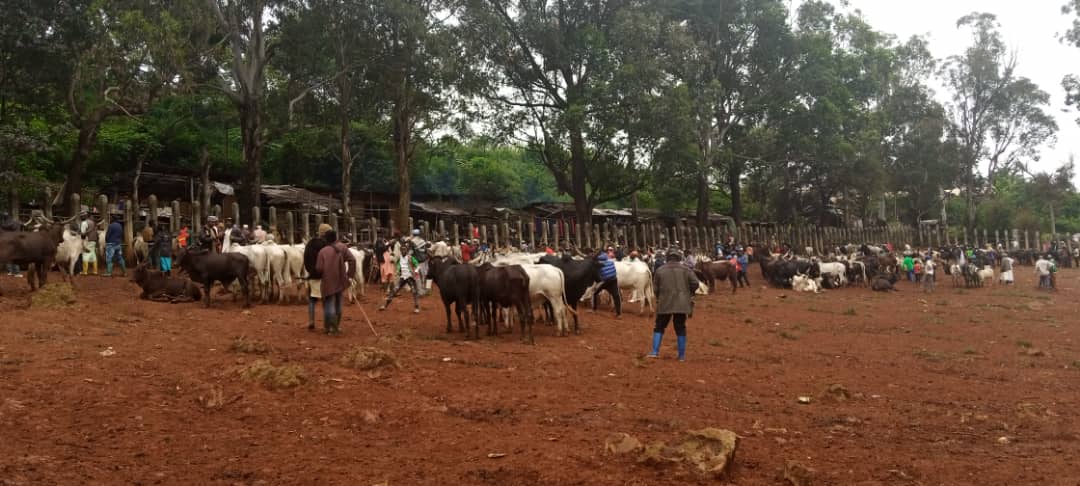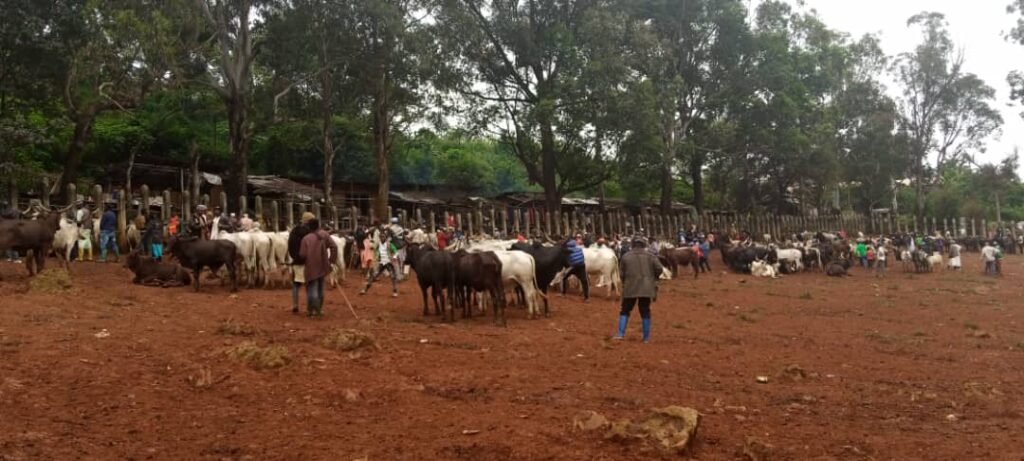North West: The crisis has forced farmers to abandone farm lands

Since 2016, the North-West, one of Cameroon’s major agricultural production areas have been greatly affected by the Anglophone crisis that has been ongoing for close to five years now in addition a health crisis. The repercussions of these crises have been felt in Cameroonian markets, which is short of foodstuff or those available have witnesses an exponential increase in basic food items which used to come mainly from this area.
Close to 70% of the population is involved in agriculture either for commercial purposes or home consumption but the situation today is food insecurity, crop failure or lack of these food items in markets while others are now jobless. Thanks to a conflict that started in October 2016 when English-speaking lawyers began protesting the appointment of French-Speaking judges to their courts.
The crisis that has been characterized by the observation of Monday ghost towns imposed by separatist based abroad or lockdowns which sometimes run for weeks have had a devastating impact on agro-pastoral production who have also been forced to abandon their farms because of insecurity, kidnappings for ransom, killings by both parties just to name a few. This has further contributed to food shortage or an increase in prices across the national territory.
Farmers like Neba John from Bua-Bua village of Boyo Division who cultivates Yam recounts how he was forced to abandon his farms and settle in Bafut because of insecurity. “I have lived, fed and sustained my family from my yam farm. I would harvest in bags and transport to markets which is sold to people who sometimes come even from Douala, Yaounde and the West to buy. I could sell for over 50.000 FRS and use that money to care for the needs of my family. My situation today is a pity. Our challenges started when people couldn’t travel safely to bush markets because of insecurity to buy, gunshots and attacks from the amba boys and sometimes Mbororo’s forced my family and I to leave Boyo Division for Bafut where I cannot even seen a farm as large as my mine to farm. Transporting my produce became an issue as one had to rely on bikes. Goods especially basic food items have become so unavailable and expensive when you find it in the market”.

According to Bri Kiven a farmer from Bui Division, the quantity she initially gave out to retailers has reduced and she doesn’t sell on credit. “Before the crisis, I could transport over 5 long bags of Irish potatoes but with the crisis, I can barely bring even two. Transportation fare has tripled the amount and sometimes the blockage of roads adds to our problems. I get to hire bikes to transport what I want to sell to Jakiri subdivision and if luck smiles on me, I get a bus to take them to Bamenda. I cannot abandon farming because it is the only thing I know and when I get to Bamenda, buyers pay cash unlike before that I could sell on credit. A bucket of Irish potatoes sometimes sells at 4000 F Cfa instead of the usual 2500 F CFa for a 20litre bucket. Sometimes we are oblige to settle the fighters we find along the way or are prevented from going to the farm when gunshots are intense or the village gets raided by the military” Bri explains.
Ransom
Just like the farmers, cattle herders equally have their own stories to tell. According to Ngo Justice and Dignity Campaign, a minority rights organization, 11,755 members of the nearly 80.000 Mbororo living in the North West region have been forced to leave the region because of violence. The Same organization counts at least 250 people killed, 475 houses burned and over 2600 head of cattle killed with over 150 million paid to secessionists as ransom.
Ibrahim Abdu Dere is a grazer who gets cattle from Wum. “We have gone through a lot, I don’t know exactly where to start with the numerous problems we have had to go through including, cattle theft in the bush from members in the locality, threats coming from separatist fighters who have suddenly own land in the bush. They came to our area and threaten us to give them cows, if we resist, they shoot some dead and abandon on the floor or they take away. It is very difficult to transport this cattle to the market and sometimes when you do, buyers complain of high prices. If the crisis is not resolved, we are in for more trouble”, Abdu laments
This other Mbororo, Sulle Bira based in Nso has a similar narration. ‘This is our source of income but when we keep cattle, the separatist fighters in the area came and take the cattle and travel to far distances, and unless we bring a huge ransom, they refuse to release the cattle. They take our cattle and travel deep into the forest, if we don’t bring ransom early, they threaten to kill all the cows. Sometimes when we go with the ransom, they would have eaten half of the cows and then left us with nothing”.
Ibrahim Hamakauo and Usman Hamidu are cattle business men. Their job is to travel to the bush and get cattle and bring to the cattle market for sell to either butchers or for individual consumption. “We made huge profits from this business but with the crisis, our major challenge is the road, to travel to the cattle market is the hardest thing we have gone through since the crisis started. We have to settle controls before we even think of leaving to go and get cattle. We are just back from our last trip to Wum and had to pay a sum of two (2) million to settle controls at the road while 5 cows were confiscated, so accumulatively we have lost 5 million. This has been our life since the crisis started and we see more gloomy days ahead if the crisis is not ended. We have lost customers due to road blockage, all those coming from, Bambili, Bali and Babanki”.
North West Regional Delegate of Agriculture Abireche Hans Uteogo is very much aware of the situation and only prays for a solution to the crisis, so that farmers can live normal lives. “The crisis with lockdown and ghost towns, kidnappings, insecurity, and road blockage has forced farmers to abandon farm lands in the suburbs to settle in town. We are suffering from food loss and very high prices for crop produce you find in the market. Cattle has been stolen mostly by separatists which has sometimes resulted in the scarcity of meat in the market or an increase in price same for tomato and vegetable amongst others. It has even made it so difficult for us to access these areas. We risk running into a food security issue if we continue in this way”.
However the Regional Delegate adds that, the Ministry of Agriculture and the North West Development Authority MIDENO have supported farmers with inputs to boost their production and increase the availability of these products in the market.
By Wanchia Cynthia







